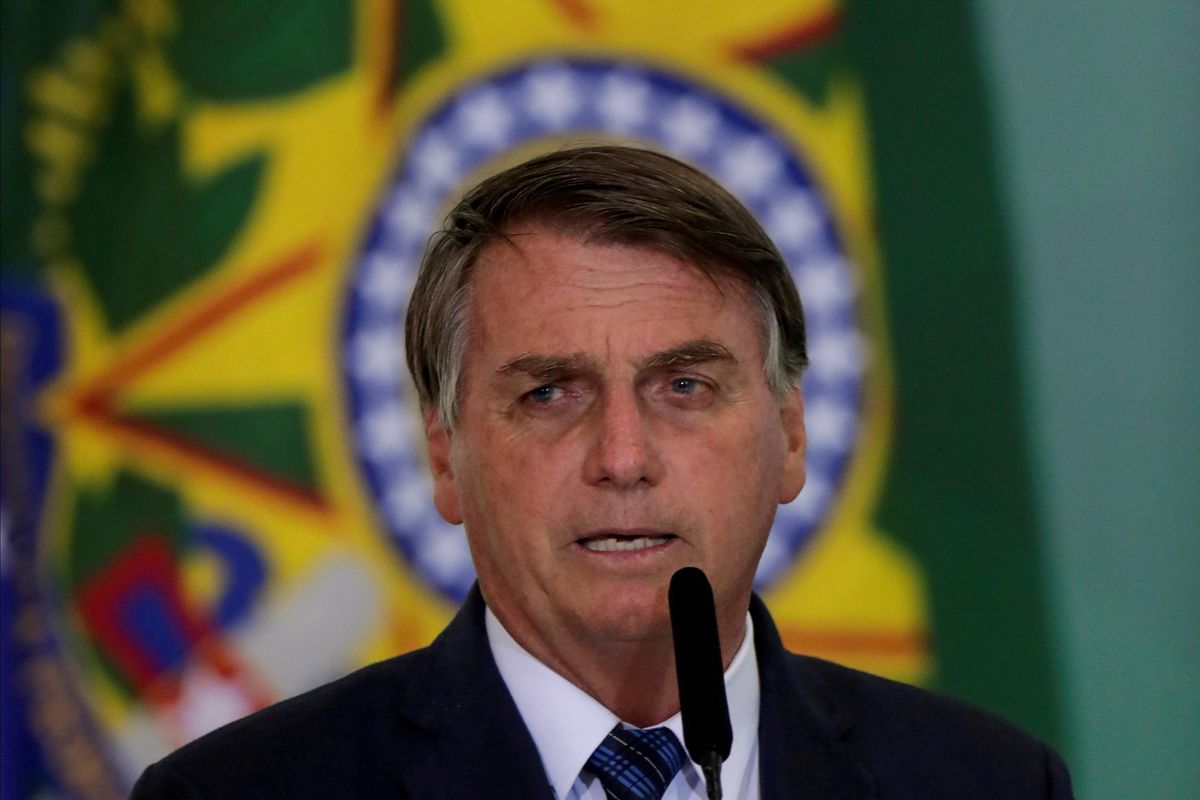March was without a doubt the most difficult month for Brazilian President Jair Bolsonaro since he came to power in 2019. The country's healthcare system collapsed under a surge of Covid-19 cases. He was forced to reshuffle his cabinet and had a falling out with leaders of the military, an institution that has been one of his biggest supporters. And to top it all off, the courts vacated the corruption conviction of Bolsonaro's biggest rival, the popular leftist leader Luiz Inácio "Lula" da Silva, who will probably challenge his re-election in 2022. What comes next? Eurasia Group analysts Filipe Gruppelli Carvalho and Silvio Cascione explain the deepening political crisis that Brazil's controversial president now faces.
Filipe, Silvio, why did Brazil's entire military leadership quit this week?
The heads of the army, navy, and air force resigned on 30 March after Bolsonaro replaced Defense Minister Fernando Azevedo e Silva in a cabinet reshuffle. The higher echelon figures in the military have become increasingly concerned about Bolsonaro's attempts to interfere with and politicize the armed forces. Even if Bolsonaro finds more compliant figures than those who have just resigned, he won't be able to assert more political control over the military. He'll likely have more success obtaining the overt support of state police forces, where the rank-and-file are huge supporters of the president.
Why has the pandemic gotten so bad and do people blame Bolsonaro?
COVID claimed 66,000 lives last month in Brazil, overwhelming the nation's hospitals and bringing the pandemic's death toll so far to 320,000. An initial slow roll out of vaccines, a lack of national-level restrictions on activity, and a lax attitude toward the virus among a sizable portion of the population all contributed to the most recent surge. The appearance of a separate, more contagious strain of the virus in Brazil has also been a factor. But for increasing numbers of Brazilians, Bolsonaro is the public face of the healthcare failure. His sneering dismissals of the gravity of the threat and opposition to measures advocated by public health experts and local officials have earned the disapproval of more than half of the public. Still, about one-third approve of the president's response to the pandemic, which has prioritized the narrative that people need to work and that lockdowns only hurt businesses.
What's the outlook for the pandemic given that the vaccination campaign is now gaining momentum?
April will be another difficult month. The intensive care units of hospitals across the country are at full capacity, with waiting lists to get in. But more restrictions on activity in large cities such as São Paulo and Rio de Janeiro, coupled with a faster vaccine rollout, should begin to ease the strain. Bad as things are in Brazil, the country is well-positioned to ramp up its inoculation campaign, as it has started local production of two vaccines. It is aiming to deliver 25.5 million doses in April and to vaccinate one million people per day (about 0.5 percent of the population). With a large share of elderly people now receiving their second dose, hospital admissions will probably begin to fall in late April or early May, leading to a potential decline in deaths and an eventual fall in case counts as the vaccine rollout reaches wider swaths of the population.
Is Bolsonaro at risk of being impeached?
He is a deeply polarizing figure. The first noises about impeachment came almost immediately after he took office in January 2019. These calls from lawmakers have grown much louder in recent weeks amid the deepening pandemic and rising political tensions. Yet the president is not yet in a position where his job is at risk. Not only does he still have the support of around 30 percent of Brazilians, but most lawmakers, including those in the leftist opposition, feel that the country should focus on dealing with the health crisis rather than plunging everyone into a nasty political battle over impeachment. However, attitudes could shift if the vaccination rollout does not improve the health and economic outlook by May. If the situation of acute crisis drags for a couple of months, the president's approval ratings could fall substantially and his position grows more vulnerable.
How has the reemergence of Lula affected the political environment?
A symbol of the Latin American left, the former Brazilian president is now eligible to run for the office again. This development, coming a little over a year before the 2022 presidential election, has energized the left and polarized politics further. Voter priorities will be the key variable to watch ahead of next year's vote, with the former president potentially polling better than Bolsonaro on issues such as public healthcare and job creation, which are likely to loom large coming out of the pandemic. It could be a very different context from the last electoral cycle, when concerns about establishment corruption helped vault Bolsonaro — a previously obscure far-right lawmaker — into the presidency.
Filipe Gruppelli Carvalho is Analyst, Brazil and Silvio Cascione Director, Brazil at Eurasia Group.





